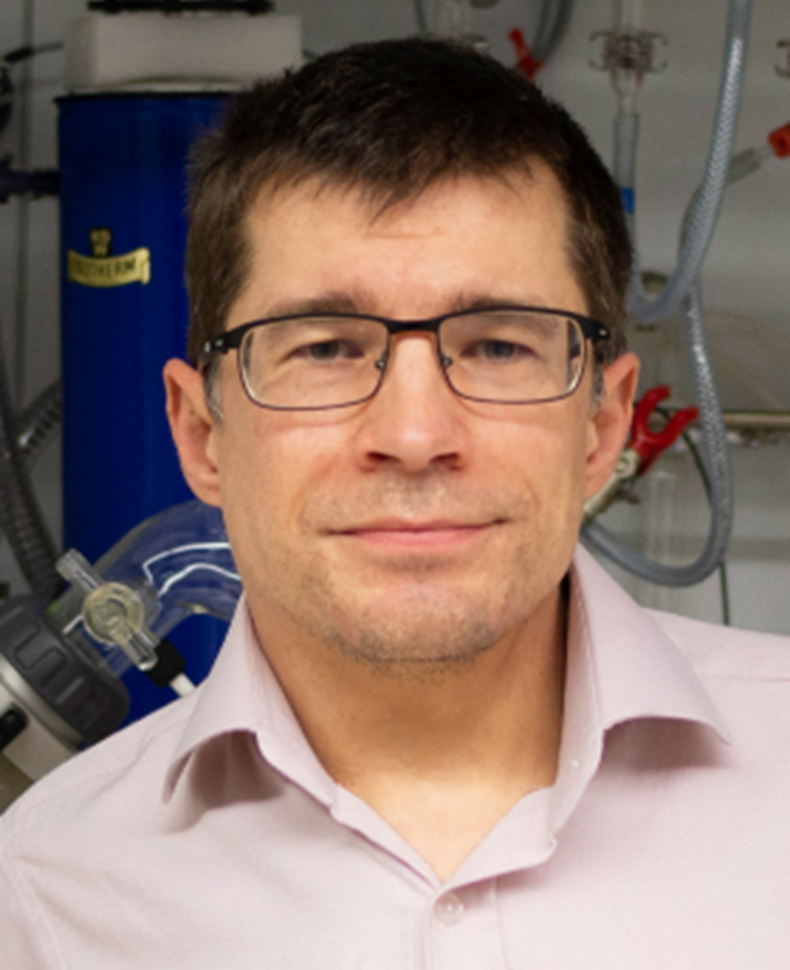Abstract
In the quest to develop highly stable nanoparticles, N-heterocyclic carbenes (NHC) have emerged as an alternative to thiol-based ligands for stabilizing metal nanoparticles (NPs), as the metal-NHC bond is usually much stronger than the corresponding metal-thiol bond. This should result in more stable NPs which are less susceptible to ligand exchange reactions. Over the last decade an increasing number of NHC stabilized NPs have been reported and significant effort was made in utilizing these compounds, such as for bioimaging, sensing and also heterogeneous catalysis.1
We are interested in NHC-stabilized AuNPs whereby the NHC is derived from the natural chiral pool.2,3 For this, L and D- histidine was converted into its imidazolium salt using methyl iodine. Subsequent reaction with Ag2O followed by the addition of [Au(SMe2)Cl] yields the corresponding organometallic gold chloride complex, which can subsequently be reduced to histidine-2-ylidene stabilized AuNPs. Due to the chiral nature of histidine, dichroic effects can be detected in circular dichroism spectroscopy. Further water-soluble and pH-responsive histidine-2-ylidene stabilized AuNPs can be obtained through a free unprotected C-terminus of the employed histidine.4
This talk will also touch on the first examples of protic acyclic diamino carbene stabilized AuNPs (ADCAuNPs).5 Compared to NHCs, which are often challenging to asymmetrically functionalize, ADCs have high synthetic flexibility allowing not only the fine adjustment of steric and electronic properties, but also the ease of access of non-symmetric substitutions. Through a series of ADC-stabilized AuNPs, we demonstrate that ADC can be an alternative to NHCs to access functionalized carbene-stabilized AuNPs, with comparable stability but often better structural flexibility.
Acknowledgements
Financial support by the University of Vienna is gratefully acknowledged. This work was supported by the Austrian Science Fund (FWF) Stand-alone grant no. P-34662
References
1. Eisen, C.; Chin, J. M.; Reithofer, M. R. Catalytically Active Gold Nanomaterials Stabilized by N ‐heterocyclic Carbenes. Chem. Asian J. 2021, 16 (20), 3026-3037.
2. Young, A. J.; Serpell, C. J.; Chin, J. M.; Reithofer, M. R. Optically active histidin-2-ylidene stabilised gold nanoparticles. Chem. Commun. 2017, 53 (92), 12426-12429, 10.1039/C7CC07602A.
3. Young, A. J.; Sauer, M.; Rubio, G. M. D. M.; Sato, A.; Foelske, A.; Serpell, C. J.; Chin, J. M.; Reithofer, M. R. One-step synthesis and XPS investigations of chiral NHC–Au(0)/Au(i) nanoparticles. Nanoscale 2019, 11 (17), 8327-8333, 10.1039/C9NR00905A.
4. Young, A. J.; Eisen, C.; Rubio, G. M. D. M.; Chin, J. M.; Reithofer, M. R. pH responsive histidin-2-ylidene stabilized gold nanoparticles. J. Inorg. Biochem. 2019, 199, 110707.
5. Rubio, G.; Keppler, B. K.; Chin, J. M.; Reithofer, M. R. Synthetically Versatile Nitrogen Acyclic Carbene Stabilized Gold Nanoparticles. Chem. Eur. J. 2020, 26 (68), 15859-15862.
